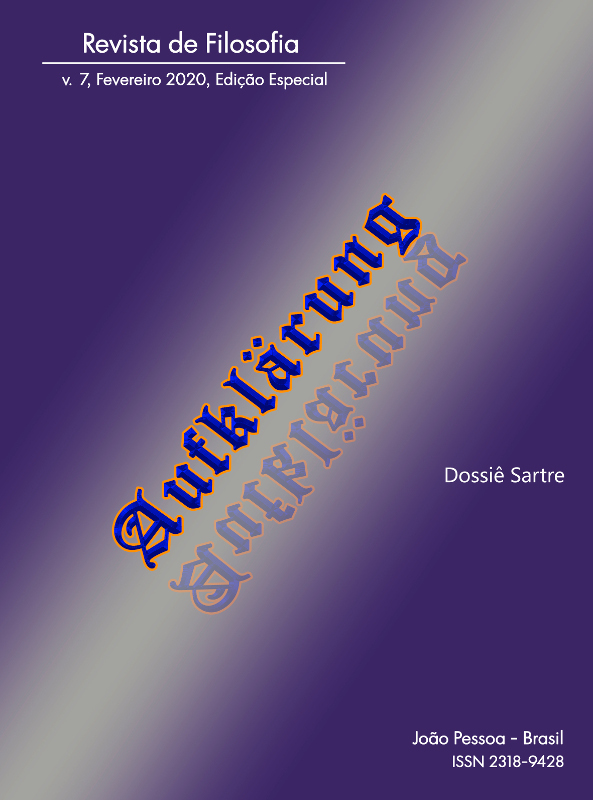Literatura e Humanismo: Fenômenos éticos no confronto entre Sartre e Dostoiévski
DOI:
https://doi.org/10.18012/arf.2019.50277Abstract
At the end of Being and Nothing (1943), Sartre alludes to a possible treatise on ethics, never performed as a separate work; in this same masterpiece, however, we find a list of critical remarks aimed at ill-founded ethical conceptions. The main concepts involved in this elucidation are freedom, responsibility, contingency, facticity, alienation, belief, bad-faith, the problem of the Other, the past, which translate human manifestations, and thus imply the ethics of a society. We treat by ethical concepts those that demonstrate conflicts and interests in human relations, focusing in some way on the particular moral conduct, resulting in a set of institutions and, consequently, of problems. Therefore, we establish a conceptual confrontation between humanist philosophy and Dostoevsky's Russian literature on the theme of Ethical Responsibility, clarifying, mainly, the concepts of Freedom, Responsibility and Bad Faith in each author. In the works The Demons (1872) and The Brothers Karamázov (1880), we find background to these sartrian concepts portrayed through significant characters, which are made current because they address political and psychic problems. The work therefore consists in demonstrating how a bad faith individual who lives in the midst of lies and alienations who cannot cope with his emotions can be recognized, nor who recognizes that he is able to make his own choices. These relationships are made through characters who are not aware of their responsibilities, who do not recognize themselves as conscience (Para-Si), who seek crutches to justify their actions, whether in God, in their own misfortune or in capitalism. They give more foundation to things than to individuals, and stand as superior for stopping them, who believe in the superiority of their beliefs, their lies, not recognizing their own freedom, nor their responsibility to the Other. We chose literature because it portrays the moral confrontations that encompass the sartrian concepts chosen for this work. Suicide, fatuity, terror and death form the canvas of the discussion that Dostoevsky proposes: the man without God, who believes only in himself, instead of being totally free becomes mad and murderous. Let us then ask ourselves: Does liberty really liberate? What makes us free? Far from bad faith and close to responsibility, we elucidate philosophical concepts through literature.
Downloads
Additional Files
Published
How to Cite
Issue
Section
License
Journal general policy
1.This journal works under a Creative Commons License aplied to online journals. That icence can be read in the following link: Creative Commons Attribution 4.0 International (CC BY 4.0).
2.Accordingly to this License, a)the journal declares that authors hold the copyright of their articles without restrictions, and they can archieve them as post-print elsewhere. b)the journal allow the author(s) to retain publishing rights without restrictions.
Metadata Policy for information describing items in the repository
1. Anyone may access the metadata free of charge at anytime.
2.The metadata may be re-used in any medium without prior permission, even commercial purposes provided the OAI Identifier or a link to the original metadata record are given, under the terms of a CC BY license refered for the Journal.







































